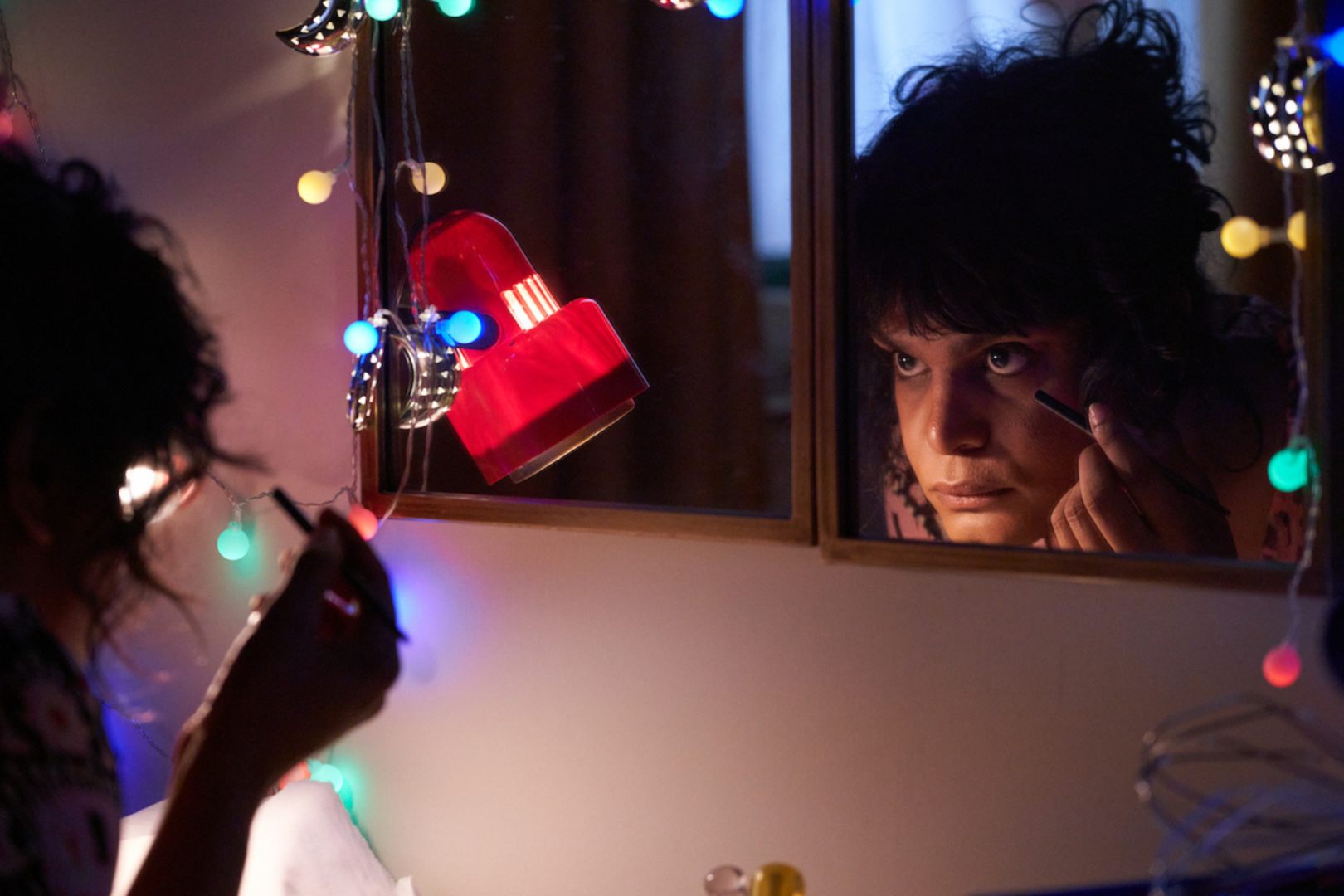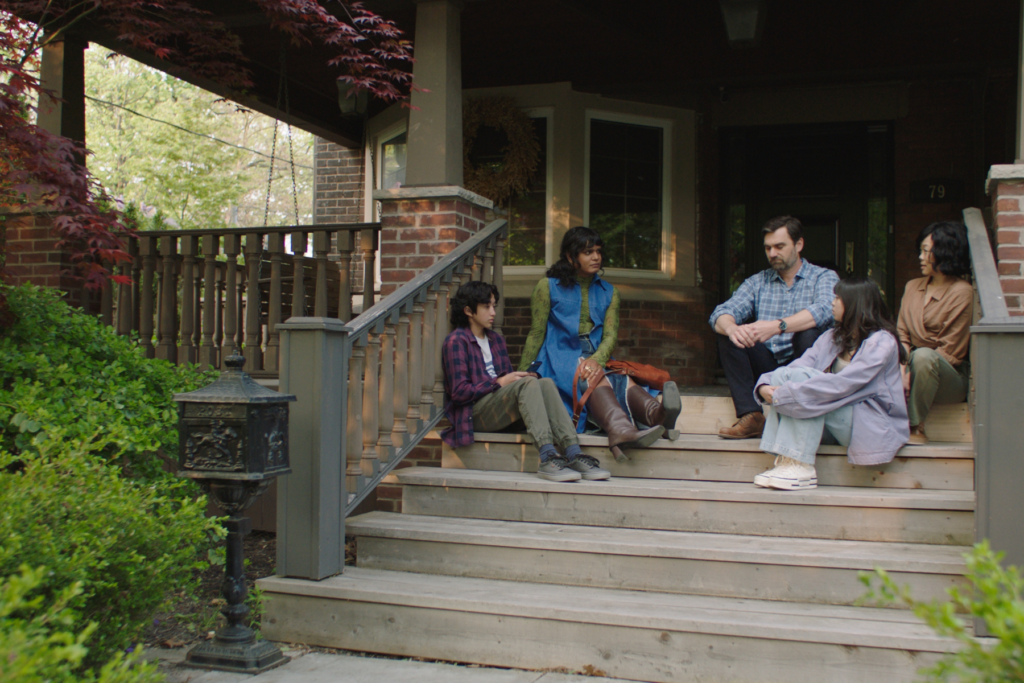
“Sort Of” fans are having all the feels as the iconic, non binary-focused series is coming to an end with its third season. The show, currently streaming on CBC Gem, has paved the way for broader conversations on inclusivity, representation and just existence. A heart-warming story that challenges traditional labels by depicting a character who encompasses several marginalized identities, “Sort Of,” is worth the watch this holiday season.
Sabi Mehboob — a non binary, gender-fluid millennial — is the youngest child in a large Muslim Pakistani family. Throughout the series, we follow Sabi’s journey in empowering themselves and refusing to fit into a mould for others’ comfort.
The show, however, hasn’t reclaimed praise just because of the community it focuses on. It’s the authentic, personal and funny storytelling that leaves a lasting impression. “Sort Of” resonates across all genders, races and ages, with the stories within it being relatable universally despite how one identifies.
Baig and co-creator Fab Filippo announced the show’s third season would be its last in a heartfelt social media post in October.
“We know how much the series means to a lot of you — it means so much to us too,” the statement read. “We set out to tell a story about a kind of transition in Sabi’s life, and how those around them also change — and we feel in this coming season that story came to an end in a way that felt right for us.”
“We’re aware that series like ours, shows that feature queer and trans characters, tend to get cancelled early on, and we know that’s been happening a lot recently. We want to say that’s not what’s going down here. We made this third season knowing it would be our last. … We’re also aware that this show is ending at a time when trans communities continue to be targeted and trans rights are being constantly attacked. Our hope is that this series can continue to affirm lives and spark conversations well after the final season drops. Sort Of will always exist, despite all the transphobia in our world.”
Reflecting back on the statement and decision to end the show in its third season, Baig shared that they and Filippo felt the story had come to its “natural” end.
“When you look at all three of the seasons together, I think it will feel like we’ve captured a really specific moment in time and in Sabi’s life, as well as, the other characters around them,” Baig said. “That felt right.”
Season three of “Sort Of” picks up right where season two ended: the sudden death of Sabi’s father. While undergoing the stages of grief, Sabi is also processing their romantic life including the aftermath of their kiss with Bessy (Grace Lynn Kung). The season is filled with big life choices for Sabi and is all about “transitions,” Baig said, in an exclusive chat with Brown Girl Magazine.

Speaking of the season’s big moments including how Sabi deals with grief and what happens after the kiss, Baig said “it felt kind of cool to let it end there.” They added that the story is meant to feel “real and authentic” and continuing it would “feel false.”
“Much of the feedback I get is from people who say, it feels like we’re watching real humans talking to each other. And to uphold and maintain that quality, I feel like three is a good number.”
Baig reiterated that playing Sabi “has been such a gift,” adding that the character “felt refreshing from the start.”
When asked how the role differs from other queer and trans roles on screen, Baig noted that Sabi’s complexity and humor in the show was “intentional” and based on real-world experiences including conversations with both trans and non binary friends.
“It’s like representation for the quiet, exhausted by the world, people who totally exist in the queer and trans community.”
“It always felt like our representation was either we’re not talking because we’re being killed or we’re these super political activists, who are educating everyone around them — which is all real — but think about somebody who doesn’t say everything they’re thinking, who has a lot of feelings but doesn’t speak on it all the time. We don’t always have to be sassy and witty or fabulous.”
The dark humor in the show “humanizes Sabi” and is “the way into so many peoples’ hearts.” Baig added, noting that humor often helps one process the trauma they are carrying.
[Read Related: ‘I Am Sirat’: Inside the Life of a Transgender Woman in India]
While many have questioned whether or not Sabi’s character was based on Baig’s own life, Baig confirmed they are not and addressed the fan-based rumors noting that Sabi is relatable because of the obstacles they face and the many identities they hold.
Baig identifies as a queer, trans-feminine, while Sabi is non binary or gender fluid. Baig shared that playing someone who is “guarded” and not “super trustworthy” had been fun and in the last season especially, Sabi goes through a “transformation” that speaks truth for many “vulnerable and marginalized people.”
The show was able to capture “how transition looks like for so many different things for so many different people,” Baig pointed out, speaking of the small and big life experiences we follow Sabi on.
“It’s not one thing; it’s not only defined by whether you want to change things about yourself and your body or not…it’s so much more nuanced than that.”
Speaking to the identities Sabi holds, Baig said they wanted to depict “multiple different kinds of trans and non binary bodies and experiences” that they felt were “lacking in media” or “not being represented at all”
“We’re not all the same. We’re different and evolving, just like cis people are.”
Baig added that while intentional, the identities of these characters were not hard to develop “because it just felt real and right.” They also lauded the team behind the show, noting that it included several people of color, women and non binary folks.
“Cis characters are presented alongside trans characters,” Baig said. “We are a part of this ecosystem and we cannot be erased.”

When asked about the challenges and current climate of how trans and queer people are treated, Baig shared that it “has been challenging” to work on projects like this and shared how assumptions associated with people “at the intersection of any identity” can be problematic.
They also spoke of the statistics associated with trans people, often negative or fatal. According to a report by the Human Rights Campaign, the nation’s largest LGBTQ rights group, at least 33 transgender and gender-nonconforming people have been killed in the United States since November 2022.
[Read Related: British Indian Filmmaker Reshel Shah Breaks Down Barriers in Documentary ‘Black Sheep’]
Baig noted that working with a team that is diverse and accepting is what helps lift the weight off the constant heartbreaking news.
Sharing their gratitude for their team, Baig noted that making the show’s atmosphere and environment safe was a priority to ensure “people felt like they could really be themselves and come to work fully as themselves.”
In terms of a takeaway from the season finale, Baig said that they hope people internalize that “we’re all transitioning” whether or not our transitions look the same. Believing that will create “more empathy towards trans people.”
Season 3 of “Sort Of” will end on December 8.




